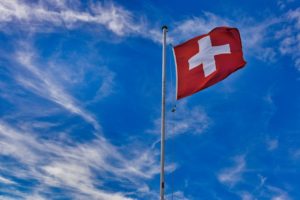EMPLOYMENT LAW: TAXES / SOCIAL SECURITY CONTRIBUTIONS
What type of taxation applies to your situation?
In Switzerland, fiscal rules depend on the type of permit you hold, your salary and the canton where you work. Foreign employees living in Switzerland, who benefit from a B or L permit are in principle taxed “at source”, which means that the employer directly withholds the taxes from the employee’s salary at rates set forth by the Cantonal Tax Administration. This simplifies a lot the taxation procedure for both the fiscal authority and the employees who might not understand Swiss taxation system at first sight. In Geneva, cross-border workers who go back home every day or at least once a week are also concerned (art. 91 LFID).


Identify the taxation type that applies to your situation.
No income taxes are withheld from the salaries of Swiss nationals and employees holding a C permit; they have to submit a tax declaration following the ordinary taxation procedure. Foreign employees married/in a registered partnership and lawfully sharing the same household with a Swiss national or a C permit holder, are treated the same way as their partner and are therefore not subject to taxation “at source” even if they fulfill the conditions previously mentioned.
“AT SOURCE” TAXATION DETERMINATION
The taxation “at source” is calculated based on the entirety of the employee’s gross salary including benefits received in kind and incidental income (art. 32 §3 LHID). The taxation is progressive except for less important incomes and the scales vary a lot from one Canton to another.
For fairness reasons, general compulsory social contributions* as well as other individual contributions of the employee (ex. 3rd pillar contributions) are deducted from the taxation calculation.
In Geneva, the employee’s family situation (ex. child care expenses) is also taken into account in the overall taxation determination.
NB: an affiliation to a health insurance company (LAMal) is also compulsory for Swiss residents. They have to comply with this obligation within three months upon arrival/birth in Switzerland. Premiums are to be taken in charge exclusively by the employees, even though some employers may contribute to the costs on a voluntary basis. Cross-border workers, living in another country but working in Switzerland, can subscribe to such an insurance in one of the two countries.
* AVS (old-age pension scheme), AI (disability insurance), APG (insurance against loss of earnings), LPP (occupational pension scheme), AC (unemployment insurance), AA (accident insurance) and AM (maternity insurance).
SPECIFIC CASES
“At source” taxpayers might in addition be subjected to the ordinary taxation regime and, therefore, might have to submit a regular tax declaration.
This is the case when the gross salary exceeds a certain threshold currently set at CHF 500 000.-/year in Geneva and CHF 120 000.-/year at the Federal level. Such a complementary ordinary taxation is also due when a person receives another income arising out of an independent activity.
NB: in Geneva, a switch from the “at source” taxation regime to the ordinary one occurs when the concerned person possesses a real estate property.
More free content on Employments in Switzerland
Browse our free content topics below. Some answers to most of the important and frequently asked questions can be found here.
Non-competition clause in a work contract
Introduction to non-competition clause Under Swiss law and according to art. 340 I CO, an employee with capacity to act may give the employer a...
Read MorePayment of the bonus, an obligation of the employer?
Swiss law contains no provision defining and addressing specifically bonuses. According to its characteristics, a bonus will be considered either as a gratification (art. 322d...
Read MoreSwiss work permits and the priority process
Following the acceptance of the initiative “Against Mass Immigration” (February 2014), the Swiss Parliament adopted the revision of the law on Foreigners and Integration (LEI),...
Read MoreInternational contracts: Is the coronavirus a force majeure event?
International commercial contracts governed by Swiss law As a general rule, parties to international contracts are free to choose the law governing their contract. Swiss...
Read MoreI am an employee: What are my rights under COVID-19?
If I fall ill, will my employer pay my salary? Yes, as a general rule, your employer must continue to pay your salary under Swiss...
Read MoreAmending an employment contract in Switzerland – Do’s and Don’ts
In the context of the global pandemic, many companies try to avoid bankruptcy by reducing their costs, among which the salaries of employees. Before unilaterally...
Read MoreSwiss immigration: The 10 golden rules you need to know
The Swiss immigration system is one of the most severe in the world for any non-European citizen planning to move to Switzerland. Following the 2006...
Read MoreAre you an expat planning to apply for a B/L permit in Verbier ?
Planning to move to the canton of Valais and apply for a B/L permit in Verbier? There are a few things you need to consider...
Read MoreAlimony in the event of separation of a married couple: what are the principles applied by Swiss Courts ?
In the event of a separation of a married couple, a spouse may ask the judge to rule on the question of the principle and...
Read MoreLosing your job as an expat in Switzerland : what happens next?
Our latest interview published in Swissinfo.ch: “Thousands of people relocate to Switzerland every year to work for the more than 25,000 multinationals in the country....
Read MoreBook your consultation
Book your legal consultation online with English-speaking lawyers! We are located within the law firm OA Legal on the 5th floor at 1 place de Longemalle, 1204 Geneva. Our consultation can be made on Zoom or in our Office for a competitive flat fee of CHF 300.-..










